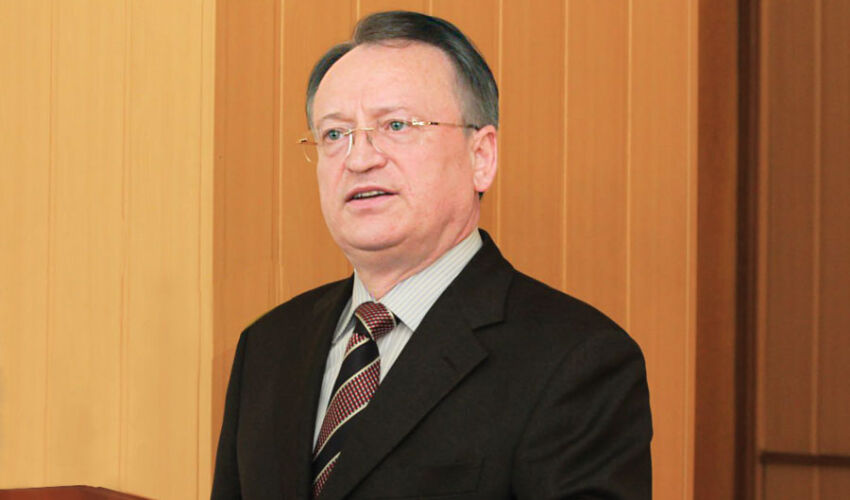
Valeriu Kitzan
Continued. The beginning – in No. 22 of 13.06.2025.
What reforms do we need?
Administrative reform implies the restructuring of institutions through reorganization, mergers and even liquidation, especially at the level of central and local government. This should also include administrative-territorial restructuring, a perennial “debt” of the political class. The aim of this reform is to decentralize decision-making, to clearly distinguish public policy and administration functions from operational ones, to delegate powers vertically and, if necessary, horizontally, and to eliminate duplicative subjects and functions.
These comprehensive measures should re-professionalize the management process, reduce bureaucracy and limit state interference both in the economy and in relations with citizens. Moldova needs a small and low-cost state structure with an efficient and professional apparatus.
Sectoral management programs should clearly outline the priorities of public policies and a calendar of proactive measures, focused on tangible results and synchronized on the imperative of minimizing systemic crises.
Priority reforms should include the following:
Administrative reform should be aimed at a deep restructuring of state institutions and administrative-territorial reorganization to revise and optimize the network and staffing of all, without exception, state institutions. The issue of legitimizing the responsibility of ministers to ensure transparency and efficiency of institutional management is important. At the same time, the professionalization and depoliticization of the civil service should become real priorities by restoring the principles of meritocracy and introducing transparent recruitment mechanisms, including the creation of an appropriate reserve. The fundamental principle that should be followed exclusively by all is the inadmissibility of interference of political leaders (and their entourage) in the processes concerning institutional and corporate management.
Economic reform implies a complete inventory of all state and municipal enterprises to identify viable entities that can be restructured operationally and financially, with the assistance of public and private creditors. At the same time, “black hole” economic entities should be decisively disposed of through privatization or liquidation. Supporting entrepreneurship through deregulation, tax and credit incentives is crucial for the development of a dynamic and competitive economy. In this regard, it is crucial to identify 1-2 key sectors of the economy, such as agro-processing and construction, which will create jobs and ensure sustainable economic growth. I believe it is also advisable to launch a financial and operational restructuring project for the horticulture and viticulture sectors, with the aim of employment and value addition.
Tax reform: rethinking and adopting a new tax concept, followed by the development of a modernized Tax Code in line with European standards and best practices. Taxation should (also) become an incentive tool to revitalize the real economy.
Pension reform: revision of legislation regarding the creation of a unified system of public pensions (so-called occupational pensions) based on the principle of contributions. Replacement of special pensions means pensions based on earnings and contributions.
Wagereform: adoption of three laws on wages in the public sector, concerning budgetary employees and those employed in off-budget institutions and economic entities. The aim is to eliminate distortions and imbalances in labor remuneration, and to remunerate based on efficiency and productivity. The introduction of clear criteria and measurable performance indicators is a prerequisite for institutional and corporate management for all government agencies (including business entities).
In order to reboot the institutional architecture, Moldova urgently needs a credible political establishment capable of convincing citizens that the proposed reforms are the only solution for modernizing its governance and socio-economic recovery. Political stability and good governance are fundamental to restoring public confidence and attracting investment, thereby contributing to sustainable economic growth.
Over the past three decades, Moldova has been constantly in search of a clear direction. Despite some progress in market transformation and steps towards European integration, the domestic institutional composition cannot be recognized as workable. The main reason is the absence of a political class responsibly concerned with the functioning of state institutions and the creation of an attractive and competitive economic environment.
Political parties should present citizens with clear economic programs, supported and adapted to the real needs of the country. The institutional potential should be transformed and modernized by highly professional and erudite staff in order to develop and implement effective public micro- and macro-policies.
Instead of conclusion
In this world, with its great challenges and great unpredictability – economic and geopolitical – it is important to defend what we have gained: freedom and new democratic values, even if we are sometimes disappointed. To paraphrase a recent remark by a foreign politician, I call on the public, and especially the political class, to reflect on the following: democracy is not a given, freedom is not a given. And the Republic of Moldova is not a given. If we want to learn lessons from history, we must know it “as it was” (Ranke). As a rule, one learns more from failures than from successes.
In view of the above, I believe that it is time for the Republic of Moldova to embark on real reforms, with the authorities abandoning rhetorical exercises and proving their commitment and political will for the inevitable changes. This is the only way we will be able to build a modern, functional and responsible state, capable of ensuring the welfare of its citizens.
Moldova can no longer afford to oscillate between temporary measures and incomplete solutions; it is time for a solid economic strategy capable of ensuring sustainable development and social equality. Consequently, to overcome the fatal cycle of hopes and disappointments, the political class should not hesitate to undertake an effective restart of the postponed structural reforms.
One of the most important solutions, given the circumstances, could be to initiate and agree with strategic partners, in particular the EU, a Recovery and Resilience Plan, whose rigorous implementation would be conditional on access to development funds (following the Romanian model).
The conclusion is unflattering but unambiguous: the reality is dramatic and there is no more time for hesitation and indecision. It is necessary to unite and “drain the swamp”. The Republic of Moldova must rebuild itself. And be on the right side of History.
Valeriu Citzan,
economist, former Minister of Finance of the Republic of Moldova





